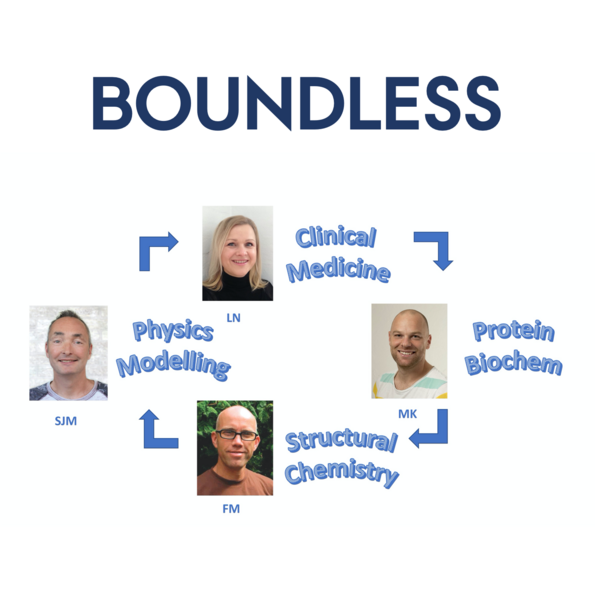New interdisciplinary consortium at AU will study membrane-less organelles
Associate Professor Magnus Kjærgaard participates in a new consortium, BOUNDLESS, headed by Associate Professor Frans Mulder and funded by the Interdisciplinary Synergy Programme of the Novo Nordisk Foundation. With the grant of DKK 14.4 M, the consortium will study how membrane-less organelles control key biological processes.

Cells are divided into compartments that are specialized for different functions, like the different rooms in a house. Many cell compartments are separated by membranes as a physical boundary.
However, biology also uses compartments without membrane “walls”, so-called membrane-less organelles. Recently it has been discovered that this happens to a much greater extent than we knew.
Such organelles form when macromolecules self-assemble into droplets, like oil drops in a vinaigrette. These droplets of macromolecules can boost or quench biochemical reactions. They can control the diffusion of membrane-bounded vesicles, and therefore act as switches in signalling pathways in our cells.
The macromolecules in the droplets are unstructured, which may be the reason for the relatively little we know about how their function is controlled.
Will study how membrane-less organelles control key biological processes
The consortium, BOUNDLESS, consisting of Assoc. Prof. Frans Mulder, Department of Chemistry, Assoc. Prof. Lene N. Nejsum, Department of Clinical Medicine and Assoc. Prof. Magnus Kjærgaard, Department of Molecular Biology and Genetics, from Aarhus University as well as Professor and Director of Berendsen Center for Multiscale Modeling and Material Design, Siewert Jan Marrink from University of Groningen (NL), has received DKK 14.4 million from the Novo Nordisk Foundation through the Interdisciplinary Synergy Programme.
Mulder and the research team will study how membrane-less organelles control two key biological processes: signalling by kinases and transport of vesicles. These processes are crucial for our body’s ability to adapt to stimuli and their dysfunction leads to many human disorders. They will combine approaches drawn from physics, chemistry, molecular and cell biology to explain how organelles control the signalling that regulates the body’s water balance.
Understanding how these processes are affected by the droplets will pave the way for new classes of pharmaceuticals that modulate protein phase separation. Likewise, understanding how condensates affect enzymes holds great promise for the application of membrane-less organelles in biotechnology.
Project name:
BOUNDLESS Signalling in membrane-less organelles: A new phase in cellular biology
Project periode:
1 April 2021 – 30 September 2024
Novo Nordisk Foundation - Interdisciplinary Synergy Programme
With the Interdisciplinary Synergy Programme, the Novo Nordisk Foundation seeks to support research projects across disciplines, organizations and national borders, in order to resolve novel interdisciplinary challenges in relation to the Foundation’s core science areas.
The goals of the research programme are:
- Pursue creative and novel, high-risk/high-gain interdisciplinary research ideas
- Provide long-term support of such novel interdisciplinary research ideas
- Stimulate an emerging interdisciplinary research culture that spans across scientific disciplines and techniques
- Break down or overcome the barriers that exist between the different disciplines
- Strengthen and internationalize Danish research
You can read more about the programme here.
For further information, please contact
Associate Professor Professor Frans Mulder
Interdisciplinary Nanoscience Center (iNANO)
Department of Chemistry, Aarhus University, Denmark
fmulder@chem.au.dk
Lektor Magnus Kjærgaard
Institut for Molekylærbiologi og Genetik/DANDRITE
Aarhus Universitet, Denmark
magnus@mbg.au.dk
